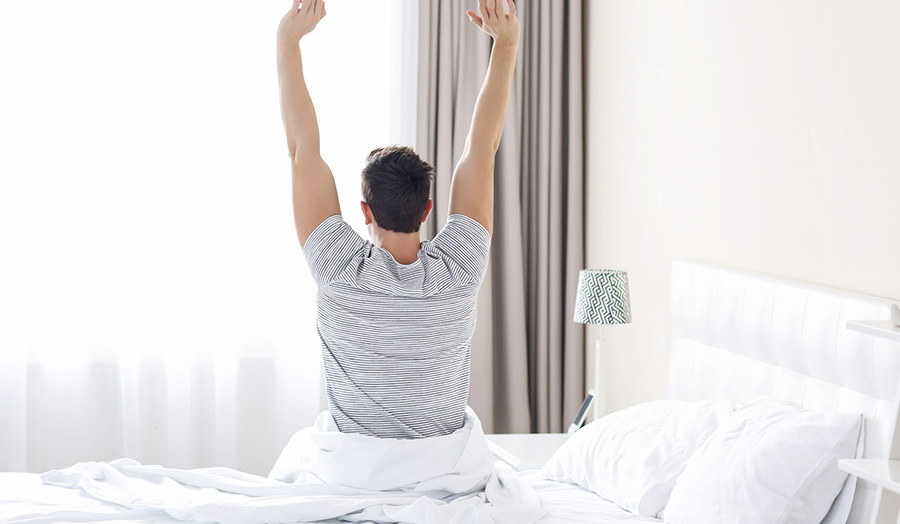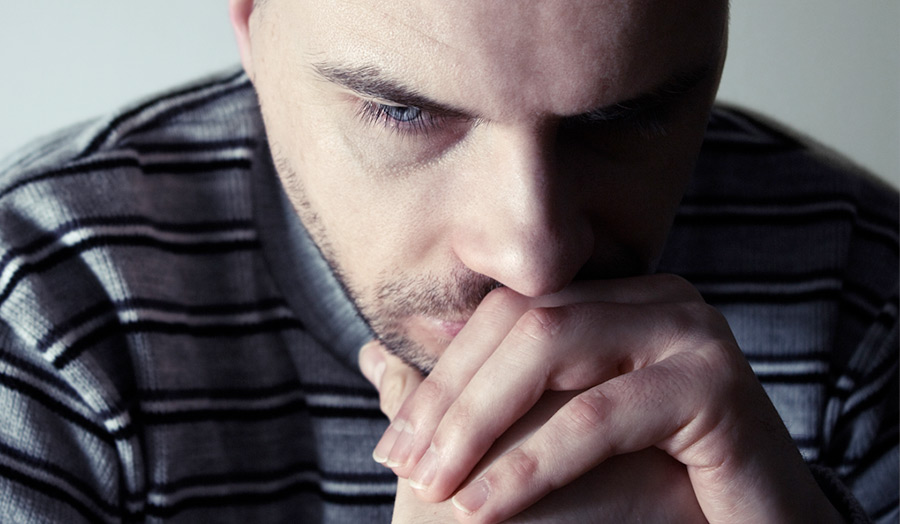
Aaron Clark, Co-Founder Mental Health Muscle,
@mentalhealthmuscle
First and foremost it is paramount that we stop looking at the two as separate issues. Physical health and mental health hold as much importance as each other and should fall under the same area of concern that is one body, health.
The mind and body rarely work independently with any great success and will organically function to their maximum when working cohesively with each other.
To really extract the importance of their relationship we will discuss mental health issues and how these are developed, improved, or indeed worsened, by poor physical health and wellbeing.
If you take an individual with poor mental health, the likelihood of this impacting their physical health is much higher than that of an individual with good mental health.
Alternatively, someone experiencing difficulties with their physical health is at increased risk of developing a mental health issue. This, of course, is not always the case, but they can be contributing factors, as will be explained below in the article.
The relationship between mental and physical health
We all have mental health. It only becomes an issue when this begins to have a continuous and adverse effect upon our day-to-day routine and lifestyle.
The evident disconnect between both mental and physical health has been clear for many years now and many people within society struggle to classify them both under the same branch of importance.
There are groups like us, Mental Health Muscle © and charities working tirelessly in the UK to bridge the gap through education, raising awareness, and improving understanding of mental health issues and the benefits that physical activity can have upon our state of mind.
At Mental Health Muscle, our vision is to make physical exercise and fitness-orientated activities a realistic and inclusive opportunity for all to escape, interact and improve mental wellbeing.
Firstly, physical activity is vital to promote positivity and confidence within an individual. Higher rates of mental health issues are found in individuals with long-term physical health problems or at the same time, in individuals who do not engage in regular physical exercise or movements.
The release of positive hormones that physical activity gives us, to name a few endorphins & dopamine, is integral for stronger mental fitness and self-accomplishment profile.
Our body's natural “happy chemicals” have been shown to be effective mood boosters, in some cases reducing the mental health issues an individual may experience.
The feelings and emotions we get when we make that personal best deadlift; run a marathon in your dream time or simply go for a walk up the hills with the family dog at the weekend, makes us feel all sorts of wonderful things; freedom, escape, achievement, happiness. The list goes on.
Added benefits from exercise include reduced stress levels, improved brain function (specifically keeping cells active and alive for maximum cognitive processing) and it has an amazing way of reducing memory loss as the body falls into a constant learning state, with new exercises, activities, feelings and accomplishments.
Mental ill health can show itself through a variety of different issues and difficulties, with anxiety and depression being two of the most common and hard to identify issues that many thousands of individuals live with on a day-to-day basis.
We all have mental health. It only becomes an issue when this begins to have a continuous and adverse effect upon our day-to-day routine and lifestyle.
As humans we are all prone to experiencing moments of anxiousness and depressive emotions, but the severity in which some individuals experience them both can be life limiting and detrimental to their wellbeing.
To be anxious in response to a new or challenging situation – and its process of ‘fight or flight’ response, can be a good thing and it makes us take extra consideration and precautions with daily activities.
However, when the ‘stressor’ passes, our mind is unable to let go of the ‘fight or flight’ response, thus anxiety can affect our physical health and impact heavily upon our ability to cope with everyday tasks and make decisions.
This decision-making is vital in daily tasks and continues our learning and development, something physical activity has a significant role in improving.
See The 4 Ways It Can Impact »
The following are ways in which we know mental health issues can affect our physical health:

1. Disordered Eating
Individuals suffering with eating disorders such as anorexia and bulimia, to name a few, will likely suffer with physical health issues due to the lack of nutrients taken on in the body from absent macronutrients, micronutrients and hydration.
With anorexia for example, the constant avoidance of high calorie foods, missing meals and excessive exercising can impact hugely upon their body condition and internal systems, thus resulting in poor physical health.
Severe weight loss is one key symptom that may be observed in someone with anorexia.
Mentally, an individual suffering with anorexia may have very irregular and disrupted hormone productionand experience a lack of self-worth, concentration, motivation and struggle with body image and/or confidence.

2. Social Media
Involved within the fitness industry is the ever present social media platforms, a technology that has transformed the world of marketing and promotion of our self.
Personal profiles on social media are deemed by many as the most important aspect of their lives and something that they rely on to function and show themselves to the industry.
This ‘toxic mirror’, as positive as it may be in places, can also be largely damaging to our wellbeing and mental state.
Think of the times you have had a negative comment, lack of likes on a photograph, lack of engagement from those friends and idols you look up to; how did this make you feel?
One negative experience of social media is that of affecting image and body confidence - remembering that social media doesn't directly impact someone's physical health, it is the mental response that comes first, which can then trigger a physical downturn, ultimately impacting their health as a whole.

3. Sleep
Depression and anxiety have some of the most evident affects upon our physical health, and by ‘physical’ we are not always referring to fitness or gym type endeavours.
Sleep is a human activity essential for body recovery, muscle growth and synthesising those awesome hormones we need to keep our mental health in the best and most positive condition.
Those struggling with depression, and my experience of working with individuals who do, are likely to experience a serious lack of good sleeping patterns.
The direct link between mental health and physical health in this situation is strengthened by the evidence of learning new things and the importance of sleep in allowing those new things to be absorbed by the brain and body.
For example, through physical activity, new skills are learnt, regardless of what age we are. In order to maintain and remember the positive skills learnt sleep and recovery is needed for us to store it effectively so that we can perform it again.
If our memory, within our cognitive processes, is affected by poor mental health, the ability to remember new skills is severely decreased. Notice the vicious cycle?

4. Physical consequences
Depression and anxiety have some of the most evident affects upon our physical health, and by ‘physical’ we are not always referring to fitness or gym type endeavours.
Sleep is a human activity essential for body recovery, muscle growth and synthesising those awesome hormones we need to keep our mental health in the best and most positive condition.
Those struggling with depression, and my experience of working with individuals who do, are likely to experience a serious lack of good sleeping patterns.
The direct link between mental health and physical health in this situation is strengthened by the evidence of learning new things and the importance of sleep in allowing those new things to be absorbed by the brain and body.
For example, through physical activity, new skills are learnt, regardless of what age we are. In order to maintain and remember the positive skills learnt sleep and recovery is needed for us to store it effectively so that we can perform it again.
If our memory, within our cognitive processes, is affected by poor mental health, the ability to remember new skills is severely decreased. Notice the vicious cycle?
Take Away
In summary, the subject matter that is physical health and mental health has no limits.
What is important is that we educate our communities and improve understanding of how the two are so interlinked; and, as I say, fall under the same umbrella of importance. With awareness comes education; with education comes understanding.
The benefits of the physical are there to be seen and can certainly have a huge positive impact upon our mental state of mind.


